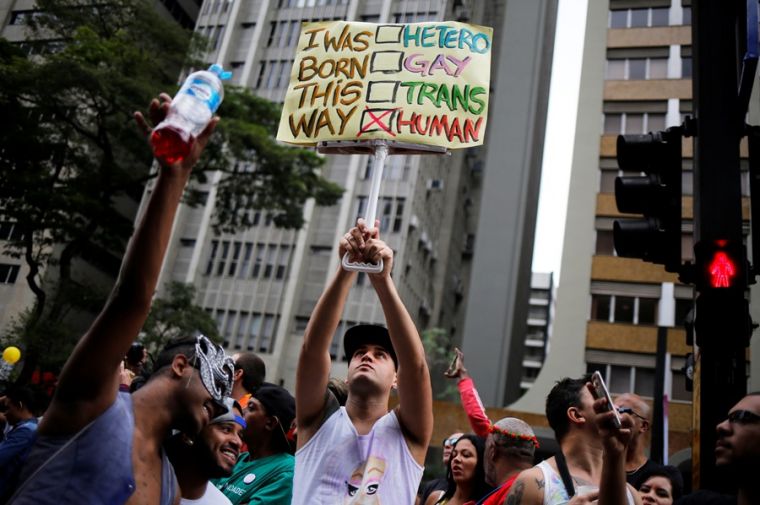Defenders of Christian values clash with LGBT liberals in Brazil's gay pride parade

This year's 20th gay pride parade in Brazil's biggest city saw a clash of worldviews between the LGBT liberals and those who defend Christian values in politics, according to CBN News.
More than 2 million people trooped to the streets of Sao Paulo on Sunday to defend the rights of transgender people to choose their gender identities "which may or may not correspond to their gender birth."
This was reportedly approved earlier by suspended President Dilma Rousseff through a decree despite opposition from the evangelicals in Brazil's House.
"The tone of the LGBT parade this year shows that the liberal movements, especially those of Marxist nature, chose as its main enemies those who defend Christian values in politics," reports Jarbas Aragao, Brazil correspondent for CBN News' Mundo Christiano programme.
He notes that this year's gay pride parade "reflected the current divide" in Brazilian society. The country's LGBT status is said to be similar to the so-called "culture wars" in the United States.
According to Aragao, one activist, transgender Viviany Beleboni, 27, directly challenged the Evangelicals by using a costume that represents the evangelical front in Congress with the word "regression" written on it, a reference to the fact that religious congressmen have managed to stall pro-LGBT legislation for years.
"My protest this year is against the fundamentalists that try to bar our laws," Beleboni said. "I will talk about religion as often as needed."
Speaking for the Evangelical Parliamentary Front (EPF), Congressman Sostenes Cavalcante meanwhile told the Christian website Gospel Prime that they have no clash with the LGBT population.
"We defend what we believe. However, we understand that this kind of provocation is just a recognition that the Front has done its job fighting for family and Christian values," he said.
The costume demonstrates "religious intolerance" by LGBT activists in Brazil, added Congressman and EPF member Ezequiel Teixeira.
Dr. Andrew Chesnut, a professor of religious studies at Virginia Commonwealth University, explained to The Washington Post recently that comparisons between culture clashes in Brazil and the United States are "valid" because many evangelicals in Brazil see their country in much the same way as the evangelicals view the United States.
The Latin America expert likewise noted that many Brazilians outside of the major cities are "fairly conservative on moral issues and identify with the evangelical agenda."
In 2015, more or less 2 million people also attended the gay pride parade. The city's 19th parade called for an end to violence and lobbied for equal rights for the lesbian, gay, bisexual and transsexual community.
The parade took place just three days after the "March for Jesus," which organisers at the Reborn in Christ Church describe as "the largest Christian event in the world," according to CBN News.
Back in 1996, the event's first edition drew only 2,000 people. Today, it is the city's second-largest tourist event, trailing only the Formula One Grand Prix, news reports say.











